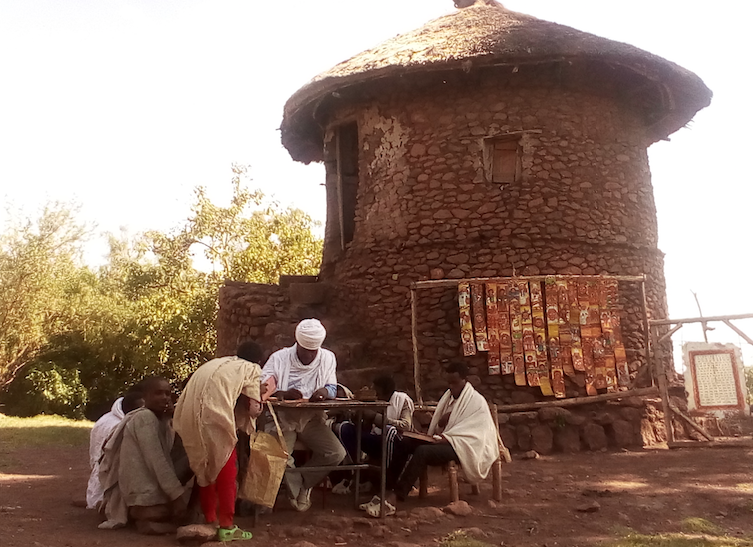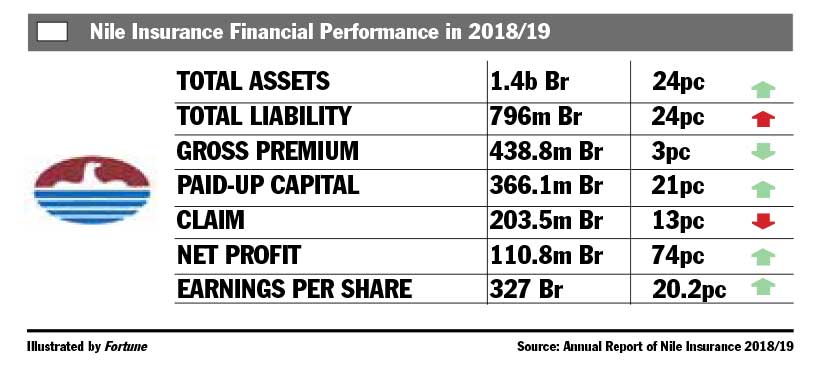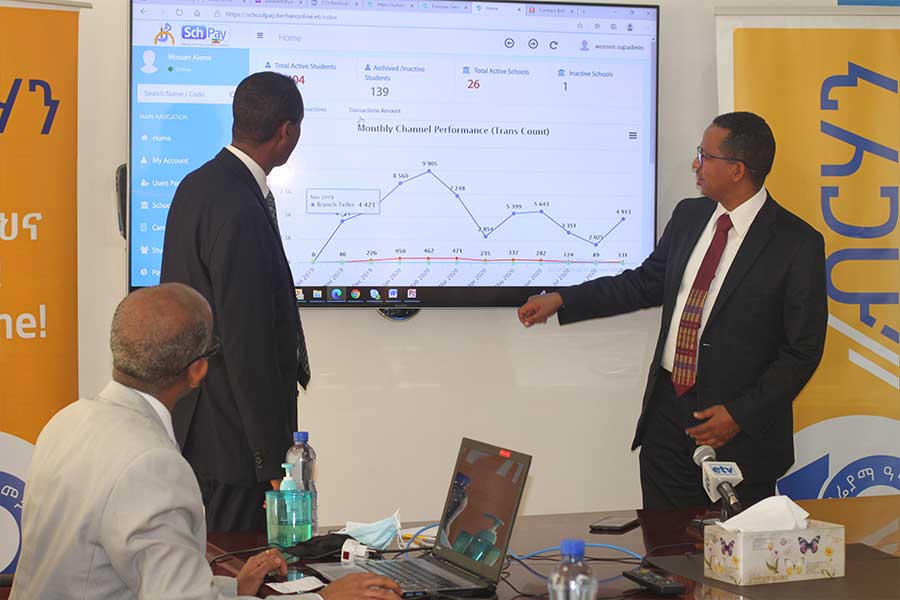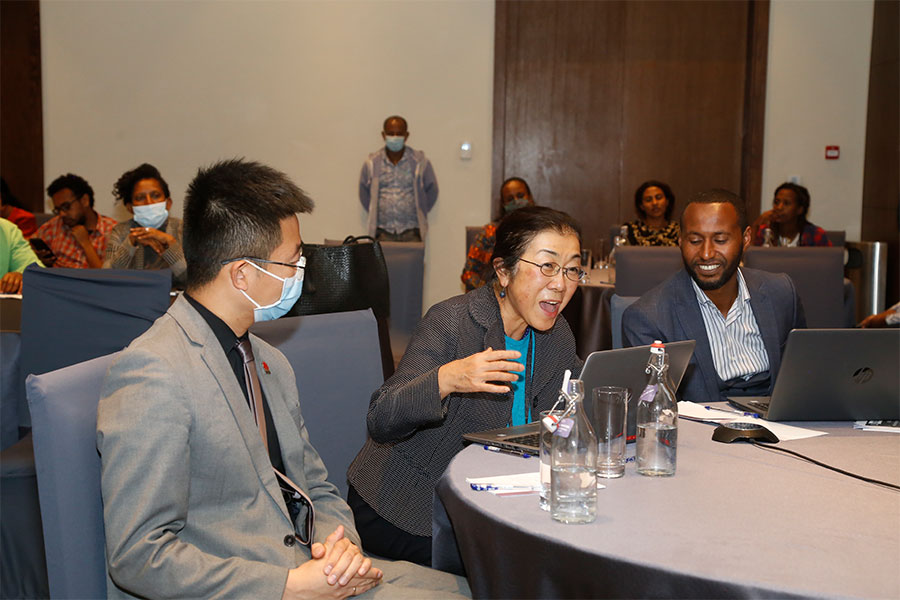
Radar | Jun 22,2019
Aug 24 , 2019
By Tibebu Bekele
Now that Buheis over and Filsetais done, here in Addis, it is that time of the year. Back to school time. The rainy season does not seem to want to go quietly and is still threatening us with its last gasp cold showers. But it knows its days are numbered.
Families are returning from long vacations spent outside the country or in the backcountry. Bags, carelessly thrown under the bed in the delightful euphoria of anticipation of a long layoff, are being looked for and dusted off for another year of slog and hard work.
Only it does not seem like it was a long layoff at all. Why time travels so fast during vacations and so slowly during the school year is a mystery no science teacher has been able to explain so far.
Explained or not, the time arrives like clockwork and children the world over go through the same yearly ritual. It is a globally shared experience. It was not always so.
The consensus seems to be that the idea that childhood should be dedicated to education started around 10,000 years ago with the advent of agriculture. Before that, hunter-gatherer kids learned through play and exploration. Survival skills were taught by doing and modelling. Besides, survival was, an all hands on deck, full-time struggle. Children had to earn their keep the same as adults. Dedicated schooling time was a luxury they could not even imagine.
But with the advent of agriculture and the resulting surplus production, at least some parents could afford to have some of the many kids they were having now, mainly the boys, dedicate many years of their childhood for learning. Unfortunately, this resulted in a two-tier class structure - those who come from families who can afford to educate them, meaning from the landholding class. And the landless who were now condemned also to be the uneducated. Those with means soon became the learned and the poor remaining the uninitiated.
Compulsory and universal public education developed around the 16th century in Europe. It really took off with the Industrial revolution. The new Rfactories now needed workers that have at least rudimentary skills to operate machines that required repetitive tasks.
This idea of schools as one cog in the supply chain of industry, the goal of teaching being the production of capable workers for factories, is behind the boring part of school we all hated. The numbing repetitiveness of the citation of facts and figures, the dull memorization of dates and events are the results of this vocationalism school of thought.
Ethiopian school curricula, with all the revisions and iterations, remain highly focused on this boring and labourer producing aspect of education. Coupled with the hierarchical culture that sees teachers as primarily the enforcers of discipline and hard work, it has made schools less fun than they should be. They are not places of wonder and innovation that cultivate a well-rounded mind.
Teachers are disproportionately focused on the enforcement of discipline and hard work than sparking curiosity and encouraging creativity. I was recently shocked when I saw the amount of homework that was given to my four-year-old cousin. I was dumbfounded he had to study for a test!
This functional and vocational thinking about education has not been constructive. It has affected the institutions of higher learning even more. Instead of a liberal arts education that endeavours to build a well-rounded student who is an excellent critical thinker and problem solver and can communicate effectively in addition to excelling in their chosen field of study, they have been producing poor technicians.
There has been a belated recognition of that recently, and the government is trying to make some changes. It is a welcome relief. Better late than never. The country cannot afford to keep producing poor technicians for factories it does not even have. What it needs are innovators and problem solvers.
So when I take my daughter back to school this year, what I am hoping for is that she will have a teacher who sees his role as not an enforcer of a code of discipline and a heritage of rote memorization but primarily that of a kindler of curiosity and creativity. Maybe then time in the school year will fly as fast as in her vacation.
PUBLISHED ON
Aug 24,2019 [ VOL
20 , NO
1008]


Radar | Jun 22,2019

Fortune News | Dec 21,2019

Radar | Jan 31,2021

Fortune News | Sep 11,2020

Radar | Nov 27,2021

Fortune News | Feb 20,2021

Radar | May 26,2021

Viewpoints | Apr 09,2022

Radar | Mar 13,2021

Fortune News | Feb 16,2019

Photo Gallery | 155991 Views | May 06,2019

Photo Gallery | 146273 Views | Apr 26,2019

My Opinion | 135209 Views | Aug 14,2021

Photo Gallery | 134785 Views | Oct 06,2021

Dec 22 , 2024 . By TIZITA SHEWAFERAW
Charged with transforming colossal state-owned enterprises into modern and competitiv...

Aug 18 , 2024 . By AKSAH ITALO
Although predictable Yonas Zerihun's job in the ride-hailing service is not immune to...

Jul 28 , 2024 . By TIZITA SHEWAFERAW
Unhabitual, perhaps too many, Samuel Gebreyohannes, 38, used to occasionally enjoy a couple of beers at breakfast. However, he recently swit...

Jul 13 , 2024 . By AKSAH ITALO
Investors who rely on tractors, trucks, and field vehicles for commuting, transporting commodities, and f...

Sep 13 , 2025
At its launch in Nairobi two years ago, the Africa Climate Summit was billed as the f...

Sep 6 , 2025
The dawn of a new year is more than a simple turning of the calendar. It is a moment...

Aug 30 , 2025
For Germans, Otto von Bismarck is first remembered as the architect of a unified nati...

Aug 23 , 2025
Banks have a new obsession. After decades chasing deposits and, more recently, digita...

Sep 15 , 2025 . By AMANUEL BEKELE
The Grand Ethiopian Renaissance Dam (GERD), Africa's largest hydroelectric power proj...

Sep 13 , 2025
The initial budget in 2011 was 80 billion Br, but this figure swelled to a revised cost of 240 billion Br by 2024, a challenge that was exac...

Sep 13 , 2025 . By BEZAWIT HULUAGER
Banks are facing growing pressure to make sustainability central to their operations as regulators and in...

Sep 15 , 2025 . By YITBAREK GETACHEW
The Addis Abeba City Cabinet has enacted a landmark reform to its long-contentious setback regulations, a...